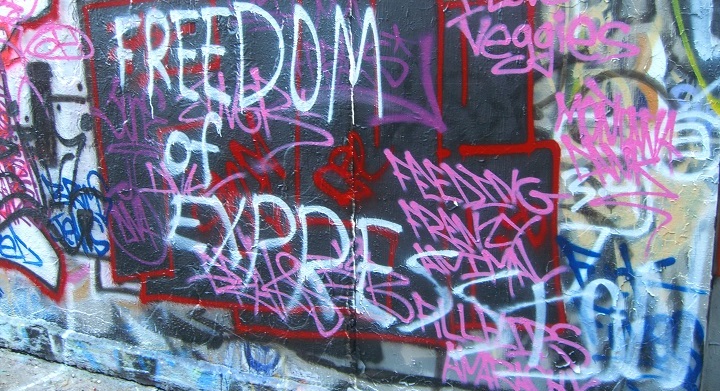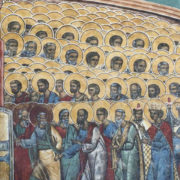
In a speech of October 24 of this year, James Jeffer, Executive Director of the Knight First Amendment Institute at Columbia University in New York, stated that: “The value of a system of free speech has to be measured not just by its effectiveness in promoting individual autonomy […] but by its effectiveness in helping us discover truth, understand one another, resolve civic disagreements, and govern ourselves.”
This is certainly valid as a description of certain basic elements of this kind of freedom; still, one is left with the impression that something is missing, here. And this impression remains unchanged when, later in the quoted speech, we read that “freedom of speech is a vessel to be filled, not a plan of action.” Perhaps we ought to think about freedom of expression, not as a vessel to be filled, not as a plan of action, and not even in purely pragmatic terms of “effectiveness”: but rather as a necessary utopia and an intricate ethical question with paradoxical aspects.
Not realization, but horizon
Freedom of expression, in fact, is not fully realized anywhere in the world, but it is a horizon toward which we continue to strive. This realization should be enough to inspire in all of us a sense of humility with respect to the enormity of the task. The «Centro Studi Sara Valesio» makes a contribution to freedom of expression by developing a humanistic communication among human beings.
 It is, to be sure, a modest program, when we consider the dramatic social and political problems of which we are all aware; but (aside from the fact that social politics are not the purview of the Center), the kind of communication I just defined is indispensable: in its absence, it seems to me that no project in this area does not have much of a future.
It is, to be sure, a modest program, when we consider the dramatic social and political problems of which we are all aware; but (aside from the fact that social politics are not the purview of the Center), the kind of communication I just defined is indispensable: in its absence, it seems to me that no project in this area does not have much of a future.
I will briefly dwell, then, on these ideas of humility and paradox; and I would suggest that freedom of expression should be cultivated, not in spite of the fact that it often leads to unpredictable and problematic developments, but just because of it.
This appears to me as the central aspect of ethic: that is, its paradoxical nature.
When we think of freedom of expression, we see it predominantly (always?) in the perspective of a subject who enunciates statements — be they verbal or in some other media, including the language of the body. (That’s why it’s better to speak of freedom of “expression” rather than freedom of “speech”).
This speaking subject is seen (and sees himself/herself) as the author of a significant discourse requiring an audience – an author who feels limited or even threatened by some adversary agent which wants to limit or obscure his/her expression. This is of course a basic and legitimate perspective, which ought to be cultivated and if necessary defended.
So much is obvious – so obvious, in fact, that one may become blind to a certain narcissistic element in it. Indeed, this is not the only way of looking at freedom of expression.
The other way around
There is another perspective, which does not contradict but integrate the one just described: the perspective of the listener. To try and explain what I mean by this I’ll have recourse to one of the most worn clichés about our subject, the statement erroneously attributed to Voltaire, one of whose versions is : “I disapprove of what you say but I will defend to the death your right to say it.”
We all know that Voltaire never actually said this, and the English biographer of Voltaire who originally cited this statement later honestly acknowledged her mistake for having put the sentence in quotes. But what is strange is that this philological specification seems to have been taken as in some sense denying the right of this statement to being seriously evaluated on its own merits. First of all, one ought to acknowledge that this utterance, although apocryphal, is a fair summary of what is still inspiring about Voltaire’s life and work (and the emphasis of “to the death” is forgivable in the case of Voltaire – who was actually persecuted because of his open-mindedness).
In the second place and above all: these philological-historical considerations do not free us from the responsibility of taking a position, in the here-and-now, about the statement in itself. Do we agree with it or not? I submit that we should subscribe in some way to those words (leaving aside the death-defying heroics) if we take freedom of expression seriously.
That statement describes somebody who is prepared to listen to somebody else: listen to the words of another or, as it has now become fashionable to say, to the words of “the other.” In fact, the rhetoric of the other has by now become so vague and pervasive that we have to make an effort in order to really feel what this otherness implies. The other to whom we should be prepared to listen is, if we want our experience to be meaningful, the radically other. Not, at least at first, in the religious sense of the valde aliud (the divine); but in a plain, everyday, secular sense: that is, the other with whom we do not agree — the other whom we do not like and whom we are inclined not to respect and in fact may be disposed even to hate — the other, not only as the victimized one toward whom we may easily feel condescending, but the other who may well be a strong and dangerous adversary.
The problematic other
I submit that only when we fully accept the right to be and the reasons for being of this problematic other (beyond every question of agreeing or disagreeing) – only then can we understand the necessity of letting others be free to express themselves – and only then we can feel authorized to develop our own freedom of expression.
 I think that “tolerance” is a weak word for designating such an attitude. But this is not primarily a question of finding the right terms; what is at stake here is accepting fully a fact that is very difficult for each one of us to entertain, that is: the actual existence of other human beings — what we may call the evidence of existence.
I think that “tolerance” is a weak word for designating such an attitude. But this is not primarily a question of finding the right terms; what is at stake here is accepting fully a fact that is very difficult for each one of us to entertain, that is: the actual existence of other human beings — what we may call the evidence of existence.
Here again, it is possible to develop this argument in a religious sense; but this is only a second, and optional, stage.
Here I will remain squarely at the first stage: the secular – I would almost say, the materialistic – one. Indeed, we might say that the basic paradox of ethics is that the indispensable first step in order to realize an attitude that may be called ethic is not ethical in nature: we are looking at elementary relations with reality.
If we do not fully entertain the existence of the (to us) hateful other as an equal partner in expressive freedom, we are in some sense denying an evidence; and there is an ample literature — philosophical, psychological, literary – that shows how easy it is not see what lies under our very eyes. (We might call it “The Purloined Letter Syndrome,” with reference to the famous tale by Edgar Allan Poe). In other words: when I do not accept the fundamental expressive equality of the “hateful“ other I, in a certain sense, become blind to the mere fact (the brutal fact, we could say) that he/she exists.
Amica veritas, sed magis amicus Plato
I suppose that this line of thought might be called “existentialist”, assuming that this term still makes sense today; on the other hand, I would not call it “relativistic,” because of the confusions connected to this ideological label. To conclude this already too-long intervention, let me quote one last and well- worn cliché, of remote Aristotelian origin: Amicus Plato sed magis amica veritas, which could be translated as “I am friendly with Plato, but I am friendlier with truth”, and whose even too obvious meaning is that the recognition of truth is to take precedence over personal feelings. (See the large critical and philological literature listed in Dizionario delle sentenze latine e greche, ed. Renzo Tosi, Milano, BUR Rizzoli, 2017 [1991]).
With all due respect for this ancient wisdom, but in line with the existential approach sketched here, and also thinking of the various dogmatic exasperations of the idea of truth in modern times, I propose to invert this motto, saying Amica veritas, sed magis amicus Plato: “I am friendly with truth, but I am friendlier with Plato”, where Plato stands for any significant interlocutor with whom one is involved in a meaningful dialogue. But even these qualifications (“significant,” “meaningful,” ”dialogue”) are in a certain sense too narrow.
Indeed, any partner in an encounter with me (any other) is more important than any abstract idea of truth. The rigid pursuit of an absolute truth risks becoming, sooner or later, the enemy of freedom of expression; whose deeper meaning (as I tried to point out) does not have to do with potentially narcissistic self-assertion but with the recognition and acceptance of common human existence.
Lecture given at the final panel of the III international symposium «Writers between Worlds – Crossing Boundaries» (Europe-University of Flensburg – 12/6/2019), organized by the Department for Catholic Studies of the EUF and the Centro Studi Sara Valesio.






La fabbrica mediatica del consenso e il popolo che sempre meno se la beve.
Mentre quelli se ne andavano, Gesù si mise a parlare di Giovanni alle folle: «Che cosa siete andati a vedere nel deserto? Una canna sbattuta dal vento? Allora, che cosa siete andati a vedere? Un uomo vestito con abiti di lusso? Ecco, quelli che vestono abiti di lusso stanno nei palazzi dei re! La profezia non di rado sta ben lontana dai palazzi del potere quando l’uniformismo impera tacitando un’autentica partecipazione.